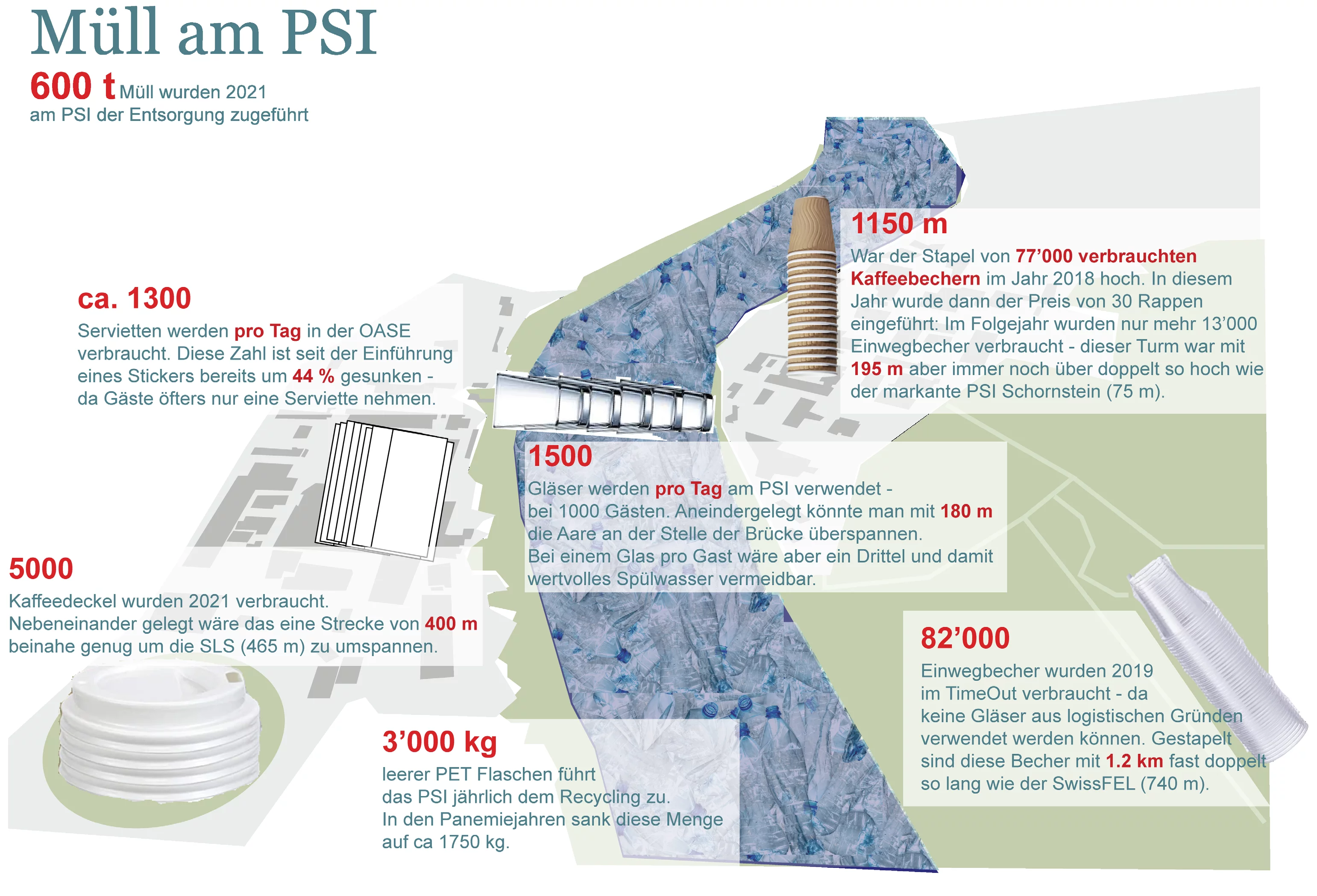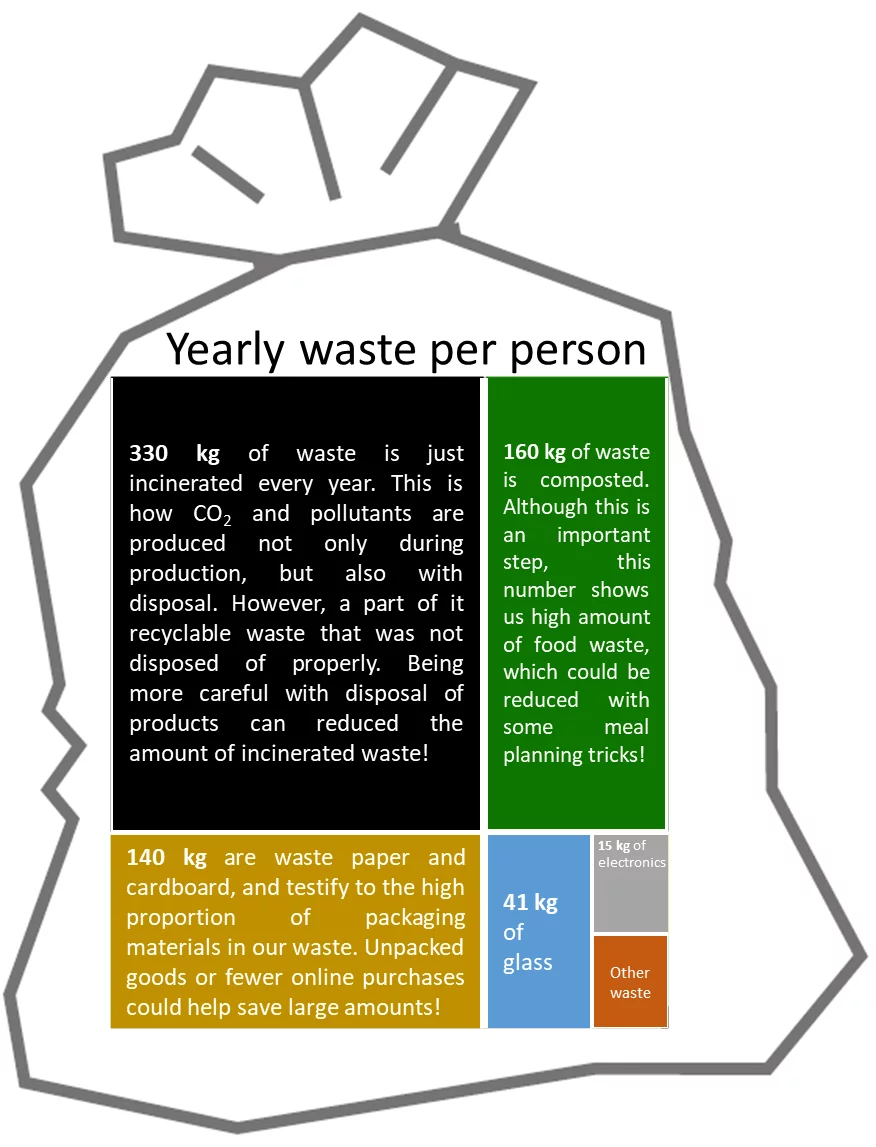by Christoph Csoklich
Single-use supplies at PSI
With over 2100 employees, workshops, laboratories and offices, a lot of waste is produced at PSI. PSI disposed of over 600 t in 2021 - and was able to recycle a large part of it! Approx. 70 % of the waste produced amount is recycled or composted - mainly scrap metal, waste paper, kitchen and green waste. Nevertheless, more than 150 tons of household waste and bulky items remain each year, and they are sent for waste-to-energy incineration or landfill. Taking a closer look to our own habits can help reduce PSI's overall waste stream!
Here are some interesting facts about the streams of supplies at PSI:
- In 2018, around 77'000 disposable coffee cups were used at PSI. This amount is enough to build a tower 195 m tall, enough to be more than twice as tall as the prominent smokestack on PSI's East side.
- In 2019, enough TimeOut plastic cups were used to cover a distance of 1.2 km, almost double the length of the SwissFEL!
- On average, 3'000 kg of PET bottles are thrown away at PSI every year.
- Every day, enough glasses are used at the OASE to stack them for a length of ca. 180 m. This is enough to cross from one side of PSI to the other, passing over the river!
With the introduction of recycling bins that simplify waste separation and suggestions to use less disposable tableware, PSI is trying to reduce the amount of waste and increase the recycling rate. However, this does not work without the collaboration of the employees! For example, you can take fewer glasses and napkins, but you can also fill your own water bottle at the water dispenser, thus you can save on disposable cups. Using your personal mug at PSI rather than to-go ones would also reduce the amount of coffee cups and lids that are routinely thrown away at PSI.
What about your waste at home?
Switzerland not only stands out for its above-average recycling rate in Europe, but unfortunately also due to an above-average waste production per capita. With more than 700 kg of municipal waste per year and person, it is in fourth place in the ranking, something that can be traced back quite directly to the high standard of living in Switzerland. However, a large part of the waste would be quite easy to avoid:
- With more precise waste separation, less residual waste has to be incinerated!
- Well-considered food purchases and timely processing are not only easy on the budget, but also reduce food waste and thus habitats and the environment.
- Local shopping and less packaging materials could save a lot of the waste paper and save on the amount of cardboard!
- Waste glass and aluminum can be recycled very well (94% Recycling ridges!), but this involves a lot of energy. Value-added packaging can make an important contribution to saving energy and resources!

